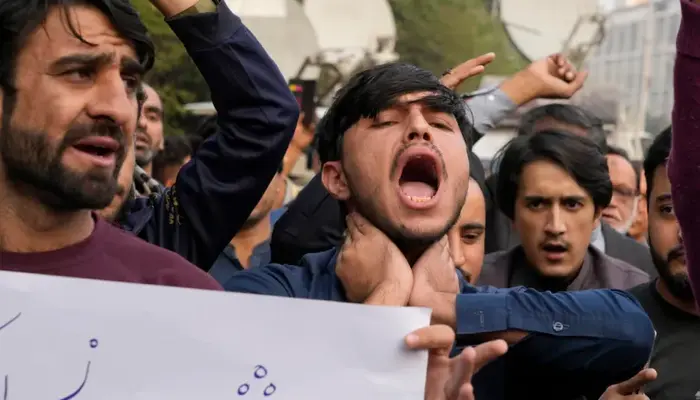Renewed sectarian clashes in Pakistan’s Kurram district have left at least 32 people dead and dozens wounded. The ongoing violence between Sunni and Shia Muslim groups in the Khyber Pakhtunkhwa province has escalated tensions in the region, following a recent deadly attack on a convoy.
Rising Death Toll
Officials confirmed that the overnight violence on Saturday claimed 14 Sunni and 18 Shia lives, with 47 others injured. A senior police officer reported that armed men from the Alizai and Bagan tribes targeted homes, shops, and government properties in the Lower Kurram area. The clashes involved intense gunfire and arson, adding to the devastation.
The death toll has risen steadily, with conflicting reports placing the number of fatalities at 32 or 33. Authorities remain cautious in releasing details as tensions persist.
Kurram’s History of Sectarian Strife
Kurram district, located in northwestern Pakistan, has long been a hotspot for sectarian violence. Its population is divided between Sunni and Shia communities, and historical grievances have fueled repeated conflicts. The area’s strategic location near the Afghan border exacerbates instability, making it a flashpoint for violence.
In recent days, the district has witnessed multiple attacks, including an ambush on a convoy that killed dozens. The renewed fighting reflects deep-rooted mistrust and a failure to address underlying issues.
Impact on Civilians
The ongoing clashes have displaced many families, forcing them to flee their homes in search of safety. With shops and houses torched, the affected communities face severe economic and emotional hardships. Basic services in the area remain disrupted, compounding the suffering of civilians caught in the crossfire.
Government officials and law enforcement agencies are working to restore order, but progress has been slow. Efforts to mediate between the rival tribes have yet to yield tangible results, leaving the region in turmoil.
Read: Imran Khan Defends Bushra Bibi Amid Saudi Arabia Controversy
Calls for Action
Local leaders and international observers have urged the Pakistani government to take decisive action. A senior administrative official emphasized the need for immediate intervention to prevent further escalation. “We must prioritize dialogue and reconciliation to bring lasting peace to Kurram,” he stated.
Analysts believe that addressing sectarian divides requires not only short-term security measures but also long-term socio-economic reforms. Improved access to education, healthcare, and infrastructure could help bridge gaps and reduce mistrust.
Escalating Regional Concerns
The violence in Kurram also raises broader concerns for Pakistan’s stability. Sectarian conflicts have the potential to spill over into neighboring regions, further straining resources and governance. As the country grapples with economic challenges and political uncertainty, resolving internal conflicts becomes even more critical.
The Path Ahead
The ongoing violence in Kurram highlights the urgent need for a comprehensive approach to address sectarian tensions. While immediate security measures can help contain the situation, sustainable peace will depend on efforts to rebuild trust and foster unity among the affected communities.
For now, the people of Kurram await relief from the cycle of violence that has plagued their region for years. The hope for peace remains fragile, but it is essential to ensure that this crisis does not deepen further.
Follow us on Google News, Instagram, YouTube, Facebook,Whats App, and TikTok for latest updates
